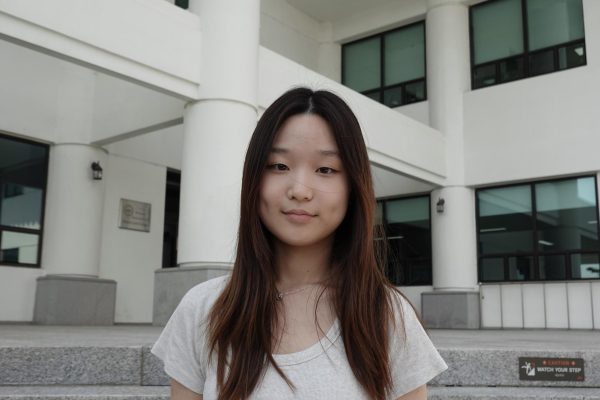On the SIS website, the matriculation list from each year is generally impressive, with names of Ivy League schools and top 20 universities scattered across the page. These results drive many students in SIS to strive for their best academic output until it is time to compile four years worth of work into a singular application on the fateful day of Nov. 1—the due date of most early decision applications.
“Writing essays, along with the common application, was the most stressful part of this whole process,” David Kim (12), early decision and action applicant, said. “I made some mistakes grammatically for early action, and I thought the whole process was quite confusing as I wrote all of my short answers and essays in a Google Document, but the common app distorts the format. And just overall, it was very hard to write all of the essays in a way that I knew that colleges would like them.”
Early applications allow students to apply earlier to their first-pick school than the regular decision due dates. There are different types of early applications: while early decision is a binding agreement, early action is non-binding. Getting accepted to the school one applied early to can be the biggest blessing a senior can ask for at this stage in the school year, as it would exempt them from working on their remaining regular applications. Hence, the rest of the school year could be spent on making the most of the time left with friends and family.
Procrastination was another obstacle that stood in the way for many seniors. Students all know that procrastination is not recommended, but the late-night cramming for summative exams never stops. Such procrastination led to sleep-deprived and anxious seniors roaming the halls until the due date of early decision applications. Admittedly, the reasons for holding off on submitting the applications until the very last minute are understandable, as the result of those applications determines the next four years of one’s life. Because of such pressure, insecurity regarding activities and accomplishments can arise, while second-guessing is a given while drafting dozens of essays with varying prompts. How can one showcase one’s life and the type of student one is in a couple hundred words or less and simply hope for the best?
“I would take a step back and question the assumption that the process of applying has to be stressful,” Kelcey Edwards, college counselor, said. “I know that [college applications] can feel like a very big moment, but I think that, in general, the things that I hear students saying in 2024 are the same as the things that students have been saying in 2000. There’s so much emotion wrapped up in this process, so we have to be good to one another, as there are a lot of highs and lows in this process.”
Indeed, the competitive nature of SIS is reflected in the college admission process, with one of the most prominent topics of discussion in the senior lounge being what college a certain student applied early to, or who was going to end up going where. It is imperative to remember that college admissions is not like a summative grade; unlike a school grade, SIS students will be competing with qualified applicants all across the world with unique backgrounds. This is why it is more important than ever to show support and trust in one another during such anxiety-ridden times, rather than unintentionally fostering insecurities.
“I can’t wait for the second semester when the results will all be out and I won’t have to worry about my future,” Minseo Kim (12), college applicant, said. “I’m looking forward to getting my driver’s license and going on a senior trip with my friends.”
Despite the whirlwind of college applications and making sure every last sentence and word is in place, with the submission of early applications, seniors are starting to see the beginning of the end during one of the most significant stages of their early lives.
While high school may have seemed like a stressful place one could be in at some points, at the end of the day, everyone else will have gone through the same process. For the graduating seniors, high school simultaneously offered memories with people one might have never met otherwise that are some of one’s closest friends and support system through those difficult times. Now, all that’s left to do is cross the finish line.


